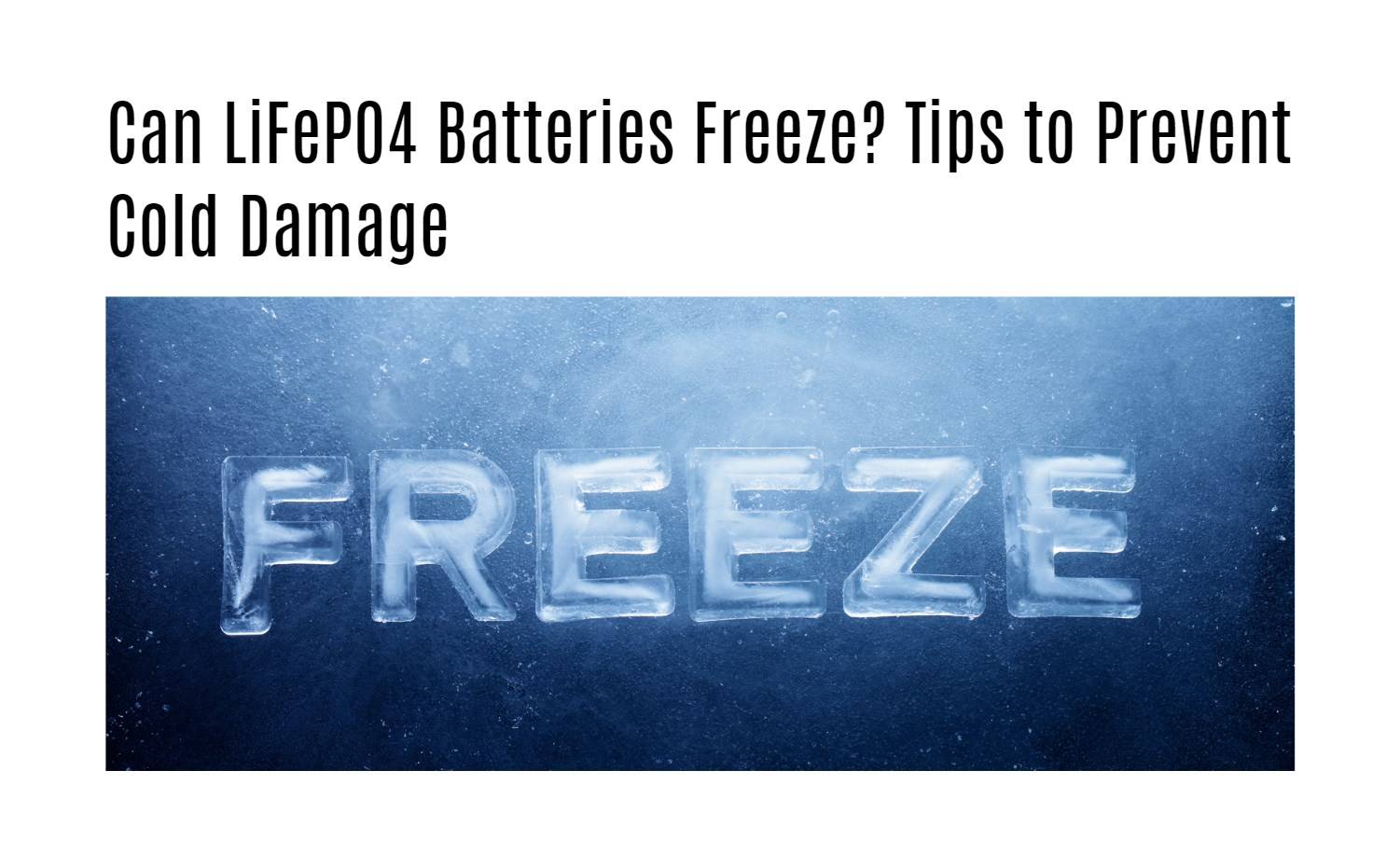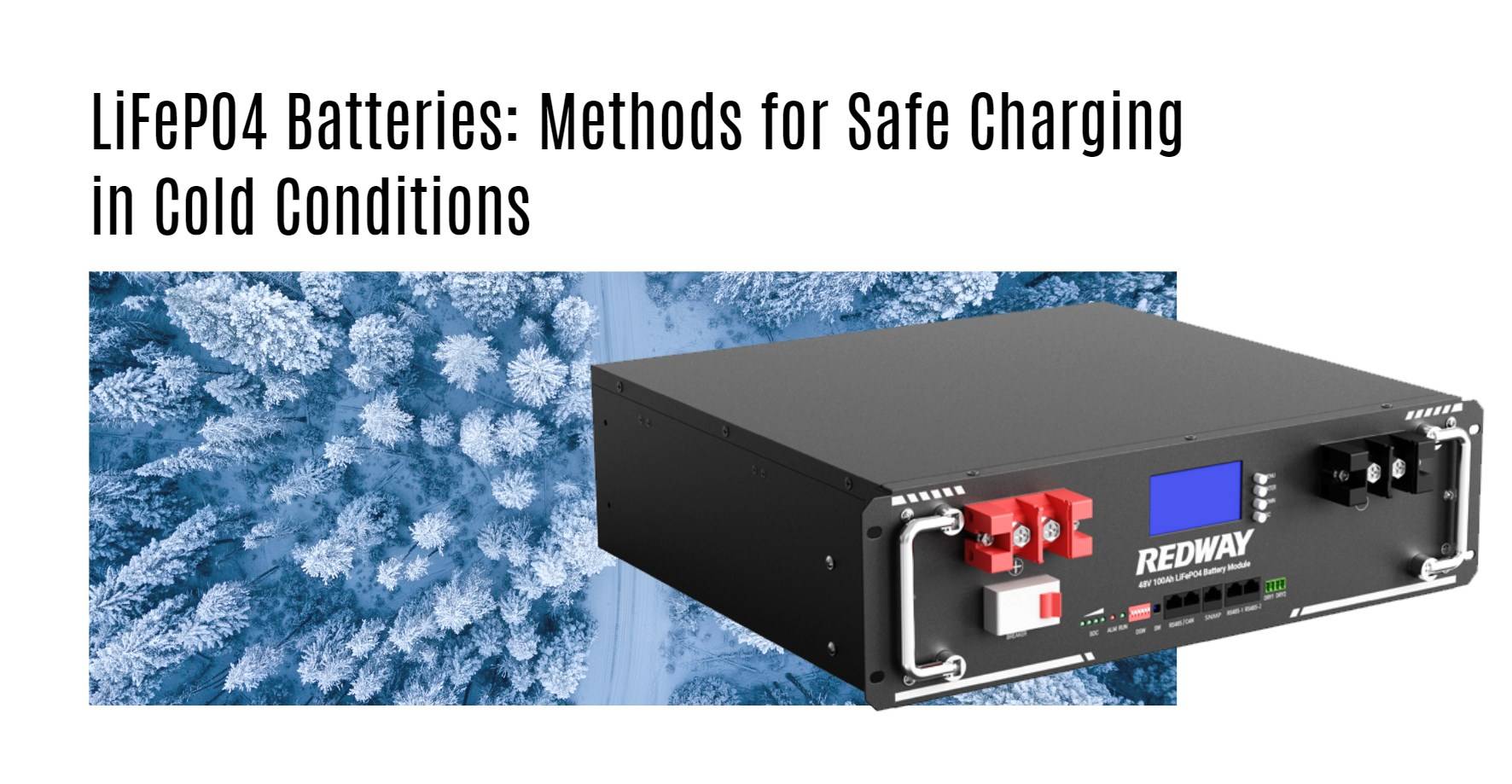LiFePO4 batteries, or lithium iron phosphate batteries, are known for their safety and longevity, but they can still be affected by freezing temperatures. Understanding how cold weather impacts these batteries and implementing proper storage practices is essential for maintaining their performance and lifespan during winter.
What Happens to LiFePO4 Batteries in Freezing Temperatures?
When exposed to freezing temperatures, LiFePO4 batteries can experience several detrimental effects:
- Reduced Capacity: The battery’s ability to deliver power decreases significantly.
- Increased Internal Resistance: Cold temperatures slow down ion movement within the battery, leading to inefficiencies.
- Lithium Plating: At very low temperatures, lithium ions can form metallic lithium on the anode, which can permanently damage the battery.
| Effect | Description |
|---|---|
| Reduced Capacity | Up to 50% loss at temperatures below 0°C |
| Increased Resistance | Slower discharge rates |
| Lithium Plating | Risk of irreversible damage |
How Can Cold Weather Affect Battery Performance?
Cold weather negatively impacts the performance of LiFePO4 batteries by slowing down chemical reactions. This results in:
- Slower Discharge Rates: The battery may struggle to provide power effectively.
- Longer Charging Times: Charging efficiency decreases, making it take longer to reach full charge.
| Temperature Range | Effect on Performance |
|---|---|
| Above 0°C | Normal performance |
| 0°C to -10°C | Capacity decreases significantly |
| Below -10°C | Risk of permanent damage |
Why Is It Important to Avoid Charging Below Freezing?
Charging a LiFePO4 battery below freezing (0°C or 32°F) poses significant risks:
- Lithium Plating: Attempting to charge while frozen increases the risk of lithium plating.
- Internal Short Circuits: The formation of metallic lithium can cause shorts within the cell.
- Thermal Runaway: In extreme cases, charging a frozen battery could lead to overheating and potential fire hazards.
What Are the Best Practices for Storing LiFePO4 Batteries in Winter?
To ensure optimal performance and longevity during winter storage, consider these best practices:
- Store Indoors: Keep batteries in a warm, dry place when not in use.
- Charge Before Storage: Ensure that batteries are charged to about 40%-60% before storing them.
- Use Insulation: If necessary, insulate batteries with thermal wraps or blankets.
| Storage Condition | Recommended Temperature Range |
|---|---|
| Ideal Storage | 20°C to 25°C (68°F to 77°F) |
| Poor Storage | Below -20°C (-4°F) |
How Do Lithium Batteries React to Cold Temperatures?
Lithium batteries generally react poorly to cold temperatures due to slowed chemical reactions within the electrolyte. This leads to decreased efficiency and increased risks of damage if not managed properly.
What Are the Risks of Freezing Lithium Batteries?
Freezing lithium batteries can lead to several risks:
- Capacity Loss: Significant reduction in usable capacity.
- Physical Damage: Electrolyte crystallization can occur, leading to potential structural damage.
- Charging Hazards: Increased risk of lithium plating and internal short circuits.
Why Should You Consider Self-Heating Lithium Batteries?
Self-heating lithium batteries are designed specifically for cold environments and offer several advantages:
- Temperature Regulation: They maintain optimal operating temperatures even in freezing conditions.
- Enhanced Safety: Reduce risks associated with charging frozen batteries.
Redway Battery has a great solution for those looking for reliable alternatives when managing lithium-ion battery performance effectively.
Tips for Battery Wholesale Buyers
When sourcing lithium batteries:
- Evaluate specific application needs regarding temperature tolerance.
- Choose suppliers who provide comprehensive specifications on compatibility.
- Ensure that proper support and warranty options are available from your supplier.
Redway Battery stands out as an excellent choice for battery wholesale buyers or OEM clients seeking reliable partners in lithium battery manufacturing.
Redway Battery Expert Insight
“Understanding how cold temperatures impact lithium batteries is essential for ensuring their reliability and performance during winter months. By following best practices and utilizing self-heating options, users can maximize their investment and maintain optimal functionality.”
FAQ Section
- Can LiFePO4 batteries freeze?
Yes, they can freeze, which negatively impacts their performance and may cause damage. - What happens if a lithium battery freezes?
Freezing can lead to capacity loss, increased internal resistance, and potential permanent damage. - How should I store my lithium batteries during winter?
Store them indoors at room temperature with a charge level between 40%-60%. - Why should I avoid charging below freezing?
Charging below freezing increases the risk of lithium plating and internal short circuits.
Practical Solutions
Implement these practical solutions to safeguard LiFePO4 batteries:
- Insulation and Heating Pads: Insulate batteries and use heating pads to maintain optimal temperatures.
- Monitoring Battery Temperature: Regularly check the battery temperature to ensure it remains within safe operating limits.
Winter Care Tips for Keeping LiFePO4 Batteries Warm
Conclusion
By adhering to these guidelines, you can effectively store LiFePO4 batteries during freezing temperatures, ensuring they remain in optimal condition for extended periods. Always follow manufacturer instructions and best practices to maximize battery lifespan and performance.




